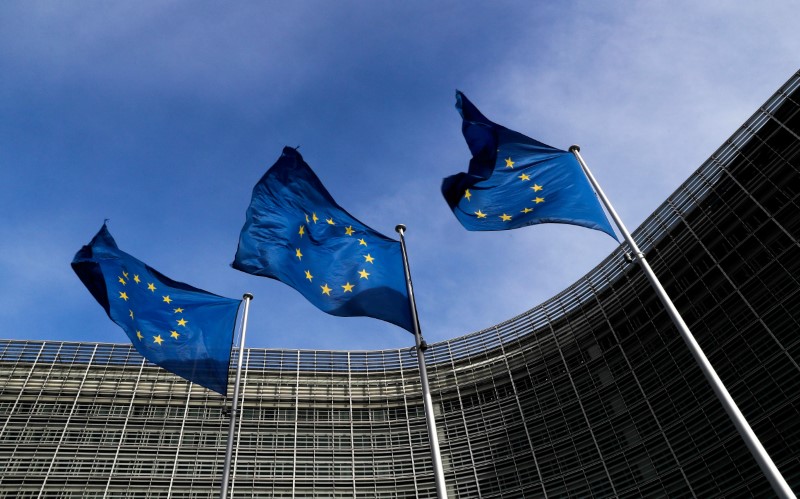By Alastair Macdonald
BRUSSELS (Reuters) - The European Commission will unveil proposals on Wednesday for the Union's next seven-year budget, starting in 2021.
Worth over a trillion euros (dollars), the costs of EU membership played a role in Britain voting to quit the bloc. However, EU leaders insist that spending just about one percent of total income -- roughly equal to the cost of one cup of coffee a day for 440 million citizens -- brings benefits for security, stability and prosperity.
Here are answers to key questions:
DOES BREXIT MAKE A DIFFERENCE?
Absolutely. Despite a large and much envied British rebate, the loss of the EU's second-ranked economy will leave a hole of at least 10 billion euros a year. Rich states such as the Netherlands and Sweden insist they do not want to pay another cent and demand that the budget shrink. They have, however, lost an important ally since Britain was a driving force behind previous cuts. Poorer countries which are net recipients of EU cash, such as Poland, have warned that they will not accept less from Brussels.
WHAT IS THE BUDGET FOR?
The 2014-20 budget or Multiannual Financial Framework (MFF) is 1.1 trillion euros or 155 billion a year and, when agreed in 2013 was worth 1.03 percent of the bloc's economic output. It represents 2.2 percent of public spending in the 28 EU states.
Most goes on subsidizing farmers, improving poorer regions and promoting cooperation across the bloc. About 39 percent goes on farm support, rural development and related areas and 34 percent on economic, social and regional cohesion. Lawmaking and administration costs about 10 billion euros a year, or 6 percent.
WILL THAT CHANGE?
Yes. Budget Commissioner Guenther Oettinger has promised to propose spending at least as great as at present despite Brexit -- at least 1.1 percent of the EU's Brexit-diminished output and possibly close to 1.2 percent -- he calls it "1.1x percent".
EU leaders expect to put more cash into:
- policing frontiers to control immigration -- one source told Reuters the Commission will propose quintupling spending on border guards to 25 billion euros over 2021-7;
- science and technology research and cooperation;
- joint EU defence projects, especially on procurement.
To make room for that, Oettinger has spoken of cuts of about six percent in spending on agricultural and regional support.
SO THAT'S ALL SETTLED?
Far from it. The last MFF negotiations went down to the wire, taking two and a half years of haggling. Member states and the European Parliament are set for tough talks, though there is an informal deadline of agreement in the middle of next year.
Germany and France, the biggest paymasters putting in 19 and 17 percent of the budget respectively, are ready to plug some of the Brexit gap if the budget suits their new priorities. Paris, for example, wants to see some budget allocated to the 19-member euro zone as part of plans to bolster the EU single currency. With its traditionally strong farm lobby, France is also likely to defend farmers from pressure to cut back on EU subsidies.
WHAT'S THE BIGGEST FIGHT?
Aside from possible reforms to the farm budget, officials expect the biggest fight to be one that pits poor, ex-communist countries in the east against rich net contributors in the west over what Brussels sees are threats to democracy and the rule of law, notably in Poland and Hungary. Leaders there deny they are breaking EU laws and values to entrench their own power.

EU officials have told Reuters their proposals include a dramatic novelty which will tie disbursement of EU funds that via national and regional governments to authorities' provision of functioning judicial systems capable of enforcing EU rules. Expect Poland and Hungary to lead a vocal push back.